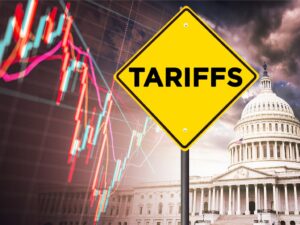The Effect of State Bans on Non-Competition, Non-Solicitation, and Non-Disclosure Agreements
January 3, 2024

In 2023, employers faced a whirlwind of legal changes affecting employee non-competition, non-solicitation, and non-disclosure agreements. The Federal Trade Commission (FTC) proposed a nationwide ban on non-compete agreements, estimating it could boost wages by $300 billion annually and expand career opportunities for over 30 million Americans. While no federal restrictions have taken effect, the FTC is expected to vote on the proposed ban by April 2024, as reported in an article by Mintz.
The FTC is not the only federal agency looking to ban employment-based non-completes. The General Counsel of the National Labor Relations Board (NLRB) suggested that such agreements interfere with employees’ protected rights under Section 7 of the NLRB Act.
State-level changes were significant, particularly in California, which expanded its ban on non-competes through two new laws, AB 1076 and SB 699, making such agreements illegal. California employers must review existing agreements and provide notice if they are non-compliant.
Connecticut tightened regulations on physician non-compete agreements, while Georgia required explicit geographical limitations in non-solicitation provisions. Indiana banned non-compete agreements for primary care physicians.
Maryland introduced a salary threshold for non-competes tied to the state’s minimum wage. Employers must update provisions to align with the evolving salary threshold. Minnesota became the fourth state to enact an outright ban on employment non-compete agreements, exempting restrictions connected with the sale or dissolution of a business.
In New York, legislative activity was prolific, with a broad ban on new non-competes and a law exempting certain employee inventions. Another law addressed confidentiality clauses in employment settlements, giving employees more flexibility in signing agreements.
The new laws and regulations make it even more challenging for employers to roll out multistate restrictive covenant agreements and will require such agreements to be tailored to ensure compliance. The overarching trend toward restricting or banning employee non-competition agreements emphasizes the need for proactive protection of employers’ confidential and trade secret information.
Critical intelligence for general counsel
Stay on top of the latest news, solutions and best practices by reading Daily Updates from Today's General Counsel.
Daily Updates
Sign up for our free daily newsletter for the latest news and business legal developments.




